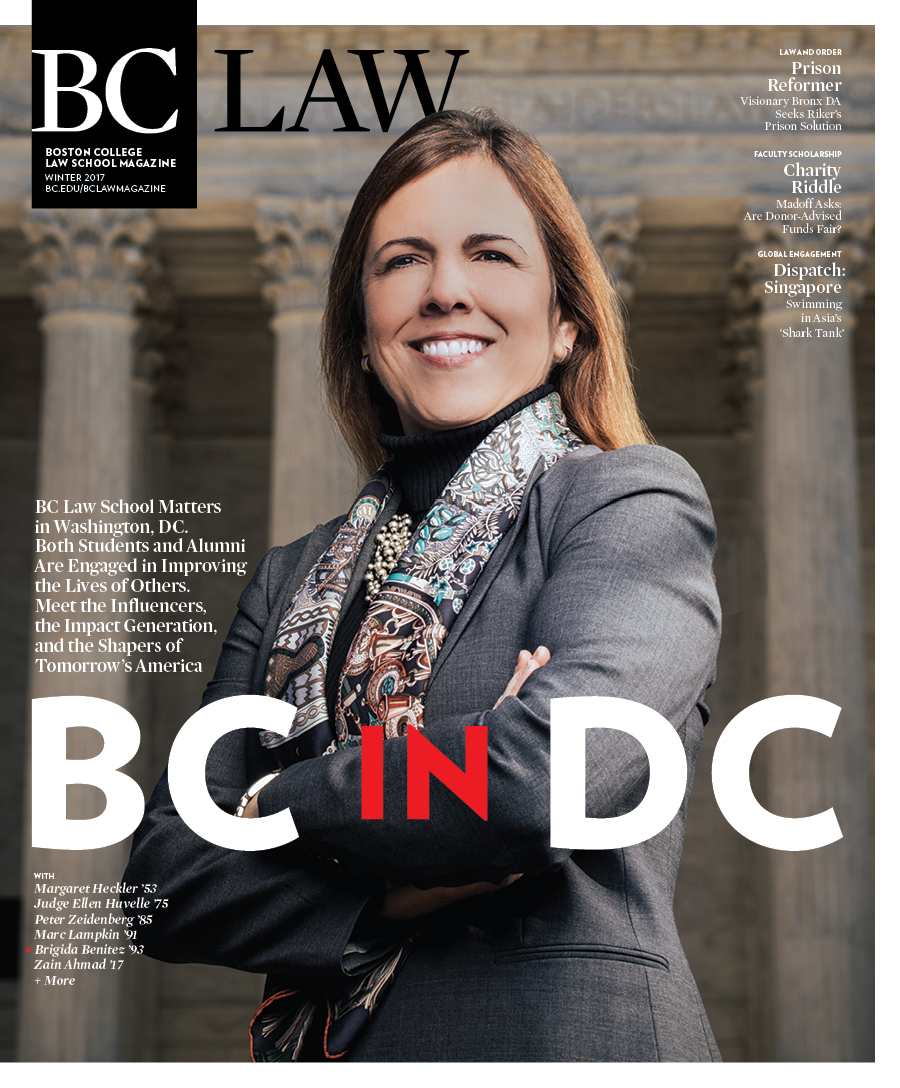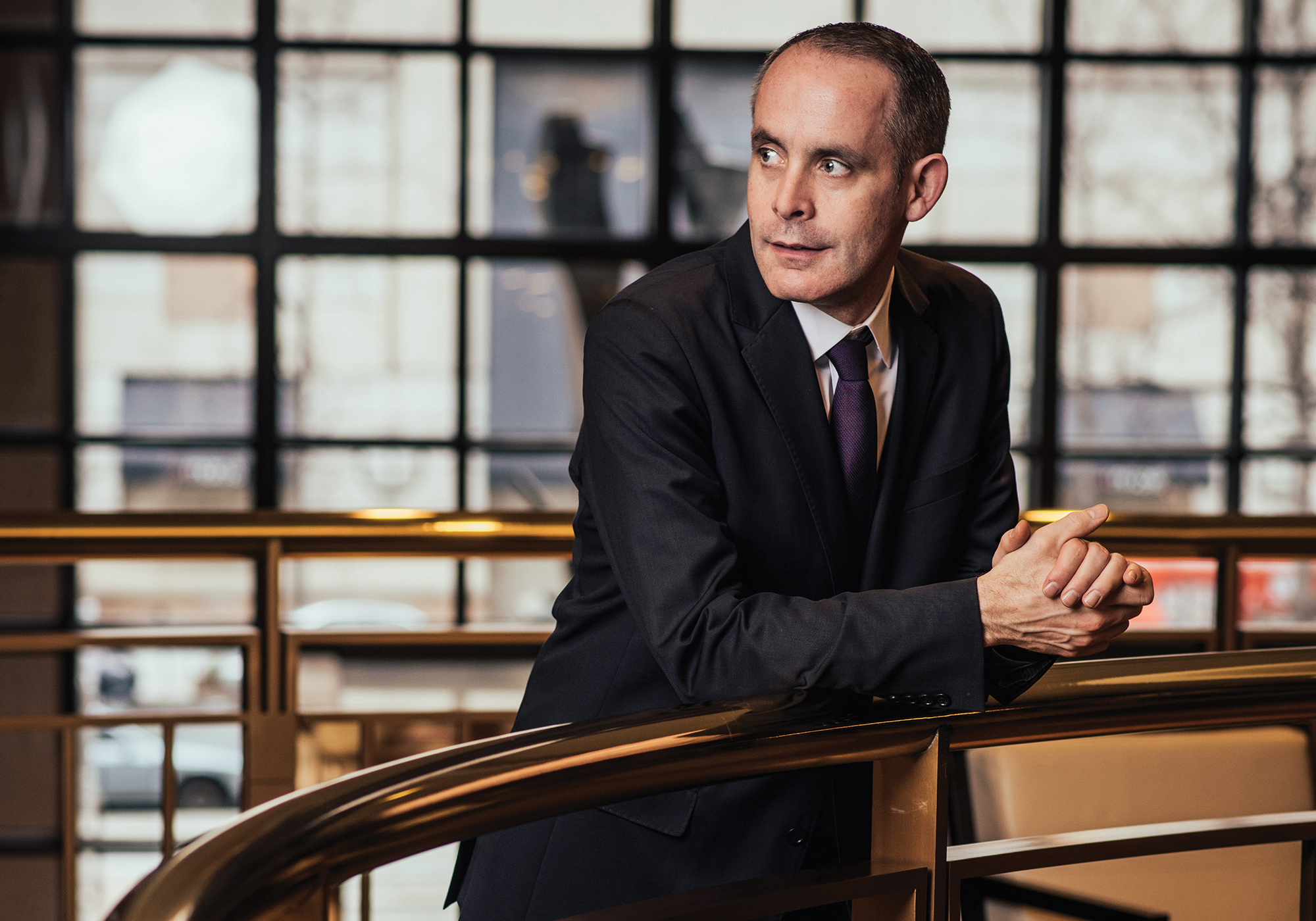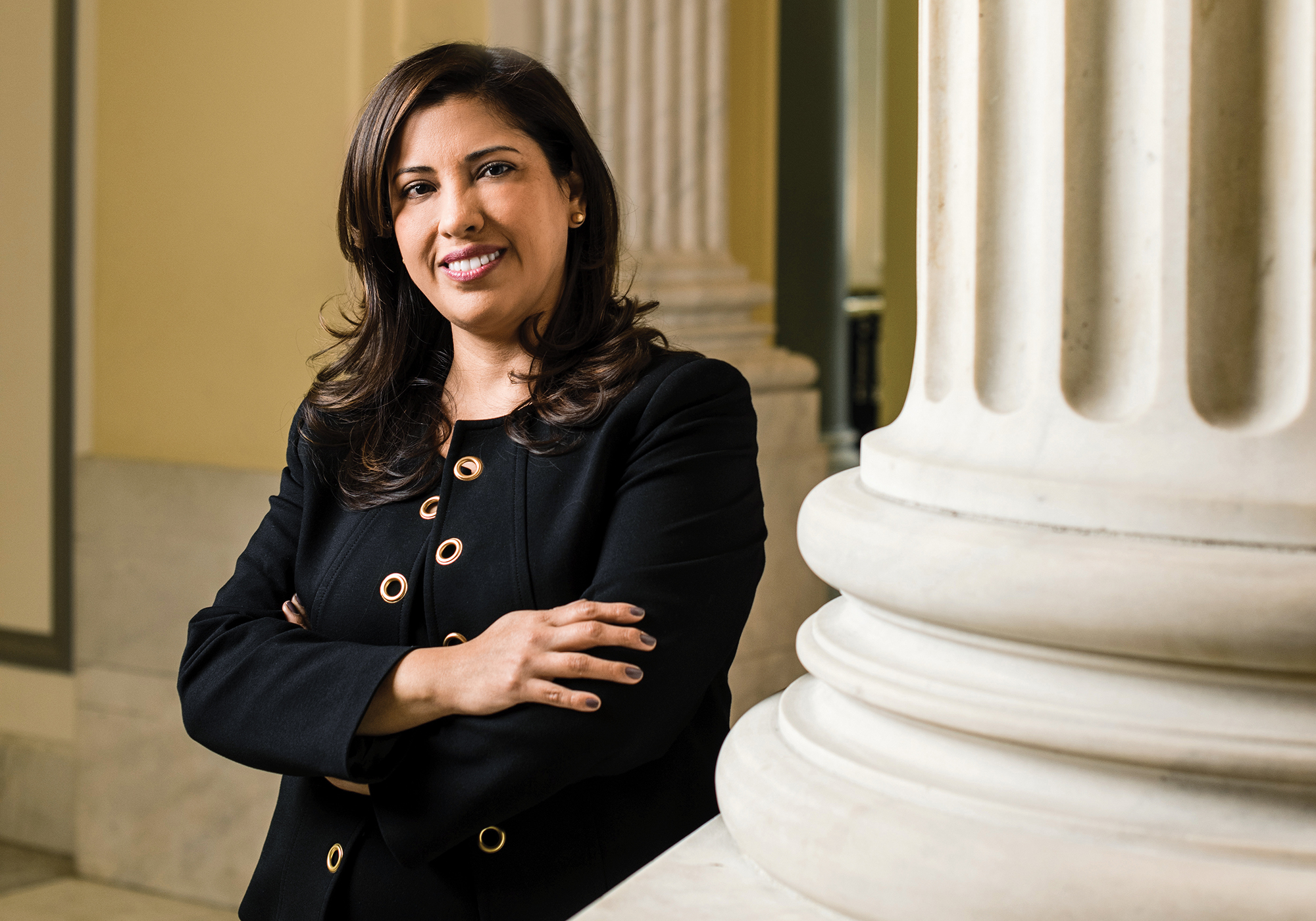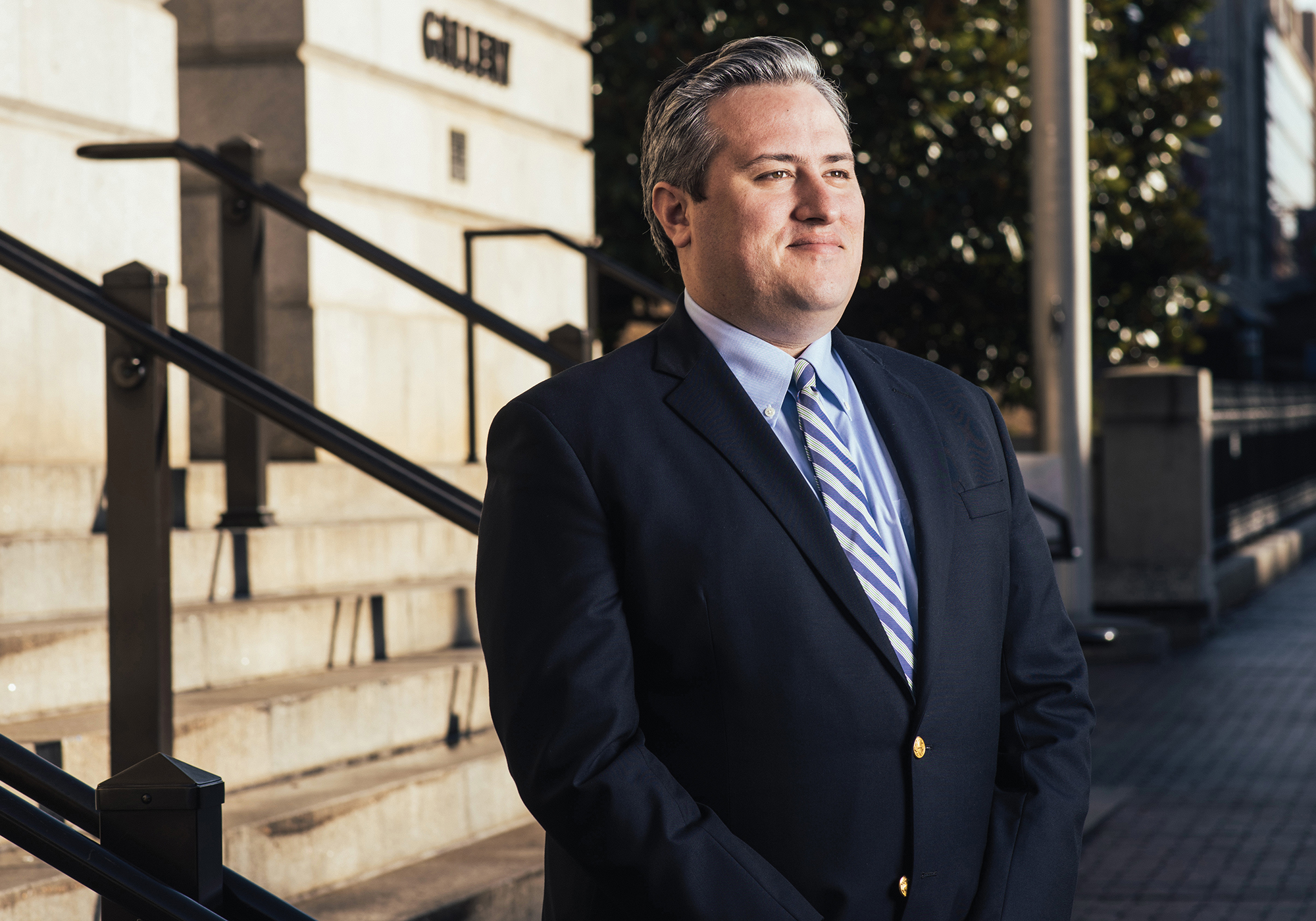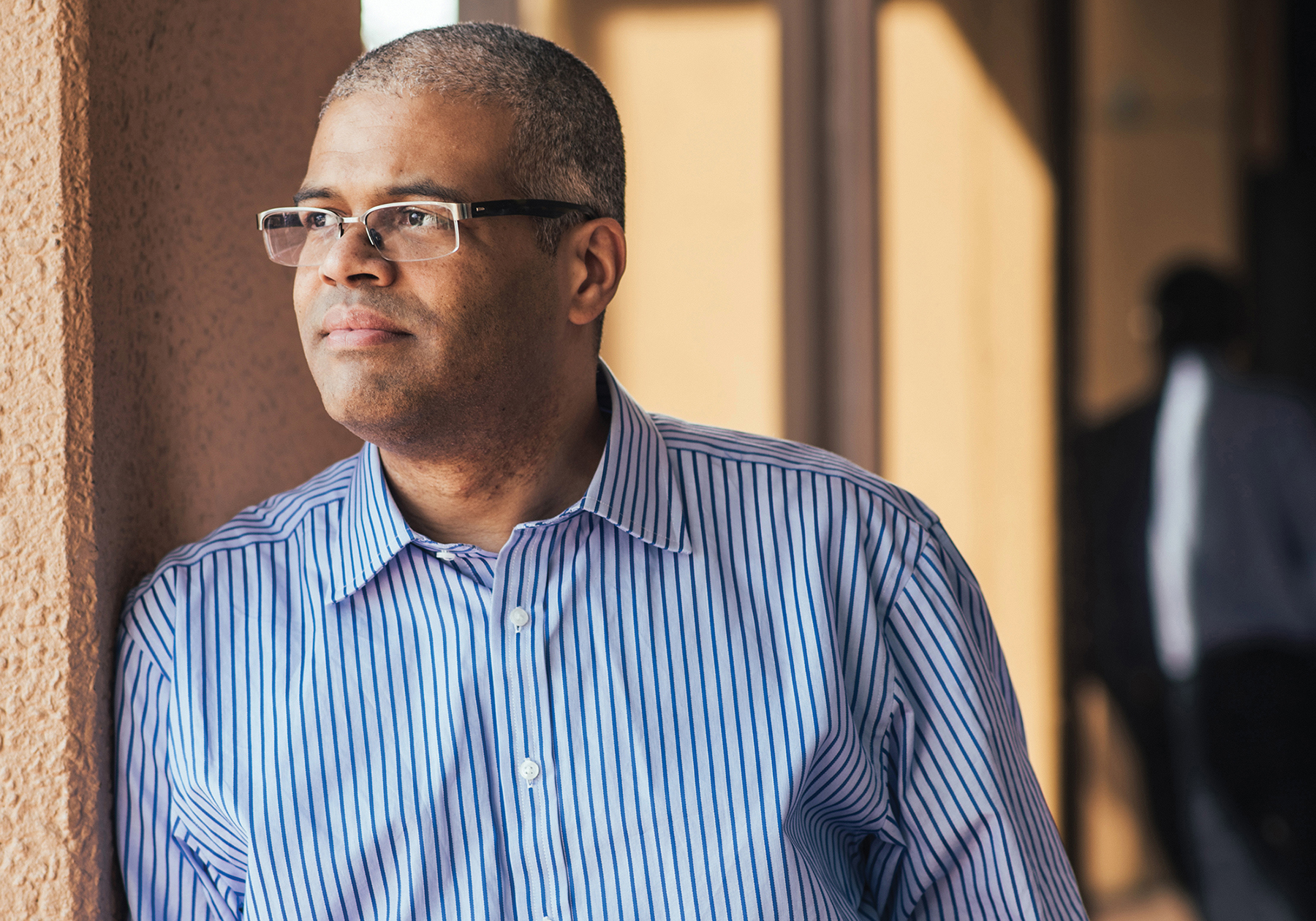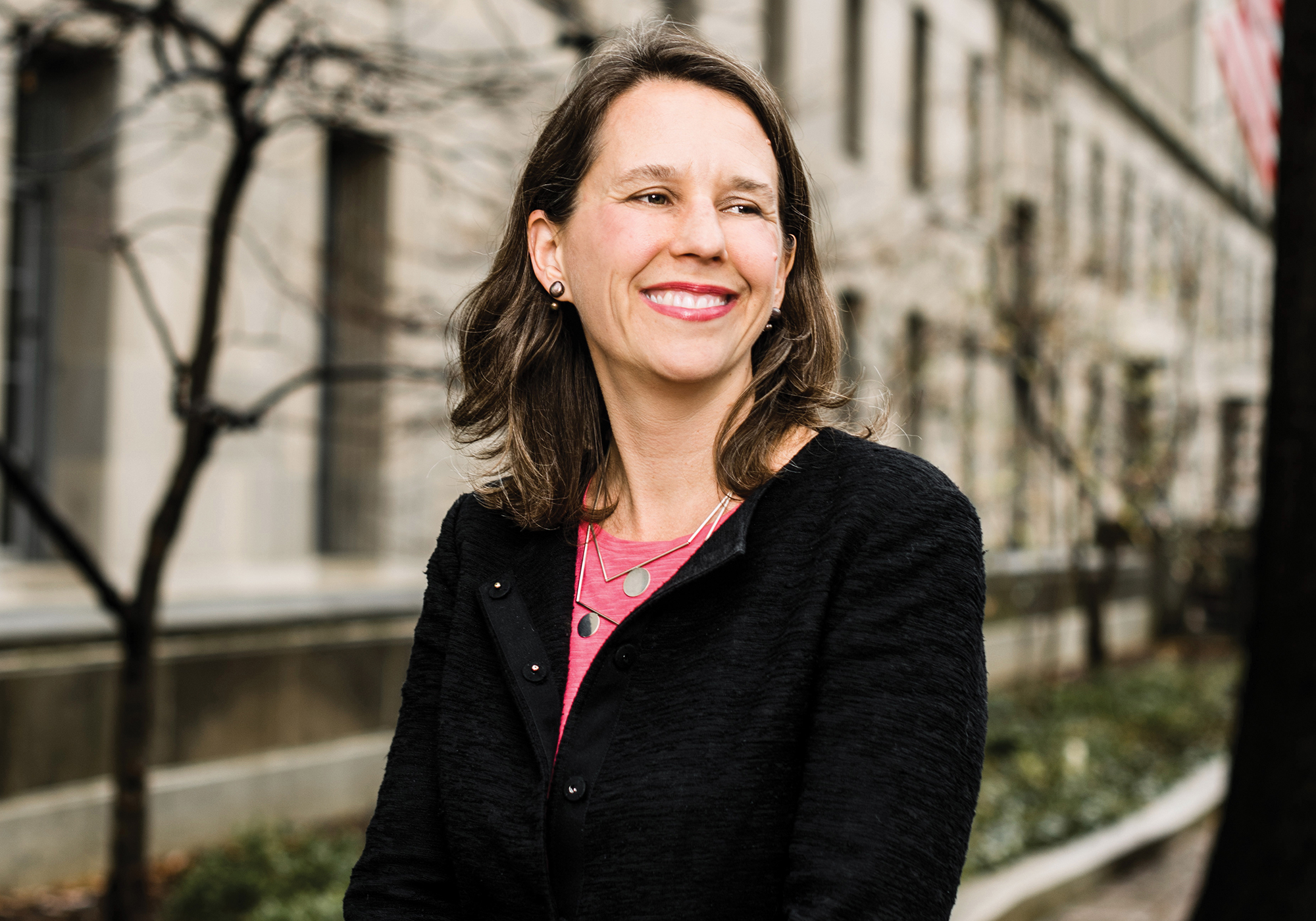LANCE WADE ’02
A noted criminal defender restores a businessman to his former life. Lance Wade represents high-profile politicians and Fortune 500 CEOs as a partner at Williams & Connolly, the storied Washington law firm that defended Bill Clinton at his impeachment trial. But perhaps his most satisfying case involved a lower profile client. A small telecom firm owned by one Brian Cox had signed people up for government-subsidized telephone service without written certification that they met low-income qualifications, relying instead on oral certification from the customer—an illegal move, said the government, which indicted him for fraud. Cox “had two kids and a wife,” says Wade, “and he faced financial ruin, along with a decade or more in jail. Meanwhile, the government had seized all his assets.”
Wade persuaded the court to let Cox have enough of his money back to mount a legal defense. Then, hours before the trial was set to begin, prosecutors dropped all charges, a result that Wade calls “virtually unheard of.” In discovery Wade had sought evidence that the FCC, which ran the subsidized program, actually allowed oral certification. At the very last minute, the prosecution realized that it did, and that a government witness was prepared to say so on the stand. Brian Cox was restored to his former life.
“Maybe it’s the Jesuit education I got at Boston College, but I have a deep desire to help people through a tremendously stressful time,” says Wade. “It can bring a lot of stress on me, but it’s also tremendously rewarding.”
LIZ LOPEZ ’00
A trade association lobbyist advocates for bipartisan congressional support for business financing in underserved communities. According to federal policy expert Liz Lopez, her biggest accomplishment as executive vice president for policy of the Opportunity Finance Network (OFN), a trade association of 240 Community Development Financial Institutions (CDFIs), is one that she has to repeat each year: getting funding for CDFI programs that leverage it to access capital for underserved and underbanked communities.
In FY 2015, CDFIs made $4.9 billion in loans to housing, microenterprise, and small business borrowers from rural, urban, and Native communities, who oftentimes are left out of the economic mainstream.
In 2017, with a new administration in place, along with newly elected Congress members, OFN will be doubling down its advocacy, letting new leaders know how CDFIs are improving access to capital.
To help make this happen, Lopez will be spending more time on Capitol Hill. “Once I get into an office,” she says, “I show [the representative or senator] how a CDFI loan has led to the creation of a supermarket in their district, or a health center. A lot of the time they don’t know where small business owners got that loan.…Once they make that connection, it’s a lot harder to cut that program down.”
STEPHEN SPAULDING ’09
A lawyer with a good-government group does his part to end gridlock in Washington. As legal director and senior policy counsel of Common Cause, Stephen Spaulding helped change how business is done in the Senate.
Early in his five years at the nonpartisan good-government group, the Senate’s Republican minority started blocking large numbers of appointees to federal courts and agencies. “They were using the filibuster in ways that made it the rule instead of the exception,” Spaulding says. “I worked with attorneys, constitutional scholars, and people at the major think tanks to show that what was going on was outside political norms.”
Spaulding’s team at Common Cause also enlisted support from organizations whose work depends on smoothly functioning, fully staffed government agencies and parlayed that into support on the Hill. Ultimately, the Senate majority rewrote the body’s rules to prevent filibusters of most appointees.
Last May, Spaulding signed on as special counsel to Commissioner Ann Ravel of the Federal Election Commission, which regulates campaign finances. It’s a natural move from Common Cause, where in addition to his work on the Senate rules change, he fought for campaign finance reform in the wake of the Citizens United decision.
Campaign finance rules are critically important to everyone, he says: “If you care about the environment, about the economy, about education, you have to think about how campaign contributions can play out in those areas of your life.”
PRATT WILEY ’06
The Democrats’ chief election lawyer saves an early voting program. “What we do first and foremost is voter education, everything from helping people register to helping them know where and when to vote,” says Pratt Wiley ’06, national director of voter protection at the Democratic National Committee. Wiley’s operation also lobbies legislators to enact early voting and automatic registration laws.
Then there’s the litigation piece. Just before the 2012 election, for instance, Ohio’s GOP-controlled legislature took away three early voting days, killing the Souls to the Polls program, whereby members of predominantly black religious congregations were bused to voting locations the Sunday before Election Day. Wiley’s legal team sued.
Noting that Ohio law still let absentee voters and overseas citizens vote on the canceled early voting days, they successfully argued that the legislature’s action deprived other voters of equal protection.
Wiley joined the DNC in 2012, after six years in corporate law, overseeing mergers and acquisitions. “I’ve stayed,” he says, “because it’s really hard to find a job where you read about something that gets your blood boiling and you’re actually in a position to fix it. When I read about the ways Republicans are trying to make it harder to vote, being in a position to correct those wrongs is the best position I could ask for.”
KATHLEEN TOOMEY ’99
The Civil Rights Division’s “managing partner” pushes innovation and boosts morale. Kathleen Toomey entered law school with the hope of someday working for the Civil Rights Division of the US Department of Justice. Today, she’s the division’s chief of staff. “I’ve always been passionate about the mission of the Civil Rights Division,” Toomey says. “As a child, I was interested in history, and civil rights was the part that most interested me.… I was always amazed by the bravery exhibited by normal people in extraordinary circumstances.”
As chief of staff, she’s like a managing partner, ensuring the division’s smooth operation. To that end, she has launched an “innovation initiative” that aims to improve the division’s work product. One example: The division often litigates a case with multiple victims. The initiative has zeroed in on the letters the division sends to possible victims, explaining the case and how to benefit from the settlement. The division is now testing improved letter formats that increase readability by reducing legalese.
A call for suggestions of topics for the initiative got more than eighty responses from employees in the 600-worker office, and participation in the initiative, which is voluntary, has been “very, very high,” says Toomey. “I can’t point to any results so far, but it is having profound effects on morale.”


